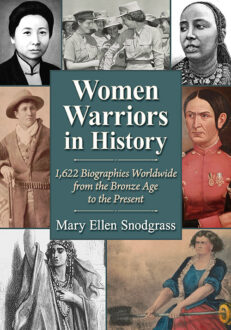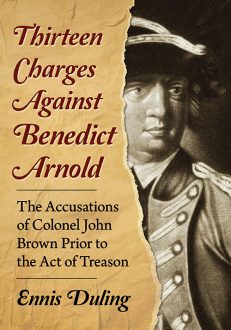Thirteen Charges Against Benedict Arnold
The Accusations of Colonel John Brown Prior to the Act of Treason
$45.00
In stock
About the Book
Years before General Benedict Arnold betrayed the American cause, a young officer and attorney named John Brown brought 13 charges of misconduct against him and called for his arrest, Brown was shuttled from one general to another, and finally to George Washington, before powerful politicians decided in Arnold’s favor without hearing from Brown or any other witnesses. Historians have continued to ignore the accusations, finding Brown’s charges to be false, and even absurd. In fact, some are unquestionably true, and all are worthy of investigation.
John Brown was an early hero of the Revolution, a legislator, envoy, spy, and accomplished field officer. His charges and his many proposed witnesses are a starting point for a reevaluation of Arnold’s conduct in the war—on his storied march up Maine’s Kennebec River to Canada, during the winter siege of Québec, and at the battles of Valcour Island and Saratoga. What emerges from Brown’s charges is a story of deceit and misconduct, and of prominent leaders and historians turning a blind eye in order to maintain exciting myths.
About the Author(s)
Bibliographic Details
Ennis Duling
Format: softcover (7 x 10)
Pages: 248
Bibliographic Info: 46 photos, appendix, notes, bibliography, index
Copyright Date: 2021
pISBN: 978-1-4766-8491-8
eISBN: 978-1-4766-4360-1
Imprint: McFarland
Table of Contents
Preface 1
Introduction: “I beg your Honour will order Brigadier-General Arnold in arrest” 3
One—“An intimate correspondence and connection” 7
Two—“An able counsellor, full of spirit and resolution” 17
Three—“He would not be second in command to any person” 28
Four—“Now, Sir, is the time to carry Canada” 38
Five—“The only field officer of any share of abilities” 45
Six—“A march not to be paralleled in history” 53
Seven—“I will have an eclaircissement with him” 67
Eight—“Mr. General Arnold & I do not agree very well” 74
Nine—“Some strange kind of conduct in General Arnold” 87
Ten—“Received much abuse from General Arnold” 100
Eleven—“I wish he may be as prudent as he is brave” 109
Twelve—“And every man of common sense” 118
Thirteen—“Sir, you are a dirty scoundrel” 128
Fourteen—“An army flushed with victory” 139
Fifteen—“The mighty army of the continent” 152
Sixteen—“The greatest conquest ever known” 161
Seventeen—“Give a thief a length of rope” 172
Eighteen—“Ah! hapless friend, permit the tender tear” 185
Conclusion: “A few gentlemen became acquainted with his true character” 193
Appendix: John Brown’s Thirteen Charges Against Benedict Arnold and Related Letters 199
Chapter Notes 203
Bibliography 221
Index 231





